We are excited to host "Applications of Lean Leadership Methods in Home-Based Care," October 12 at 1 p.m. ET, presented by Cooper Linton, Duke HomeCare & Hospice (DHCH) Associate Vice-President.
This post provides a preview of some of what will be discussed. You can still register by clicking on the image below. The session will be recorded, so please register even if you can't attend live and we'll send you a link to the recording.
The learning objectives are:
- The fundamentals that guided the Lean journey at Duke HomeCare & Hospice
- Why committing to zero harm is such an important fundamental belief
- Why it's crucial for the organization to capture good catches, close calls, and near misses
- How safety huddles and tiered huddles provide a structured format
- Why "A3 thinking" must become the organizational culture
- Challenges to implementing Lean in home-based care
Below, we'll share a few slides that will give you a preview, and please tune in to here more details (and to ask questions, as we'll do at least 15 minutes of Q&A).
Mr. Linton will begin by describing the fundamental elements guiding DHCH to help the Duke Health agency solve critical issues, including low staff engagement and high turnover, billing delays, and eliminating process and communication variability among 380 staff; DHCH staff serve both inpatient hospice patients (in North Carolina) and hundreds of home health and infusion patients across three states. You will notice that the first element is “respect for our staff.”
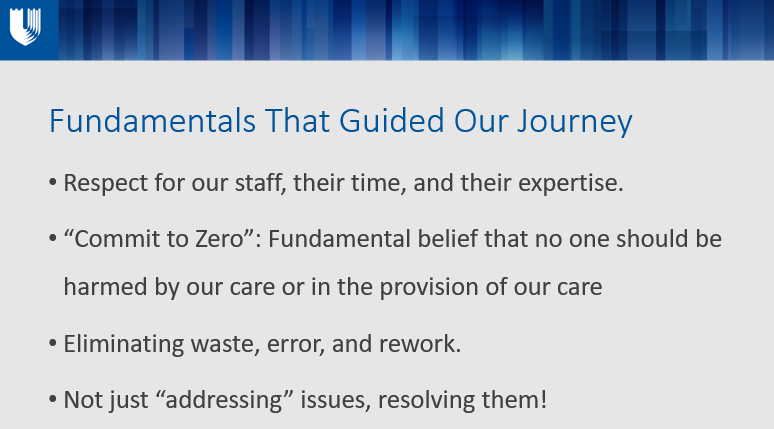
Mr. Linton will dive more deeply into the guiding principle of “zero harm,” meaning zero harm for patients, staff, visitors and patient family members. This commitment is a driving force not only within DHCH, but throughout the entire Duke Health System.
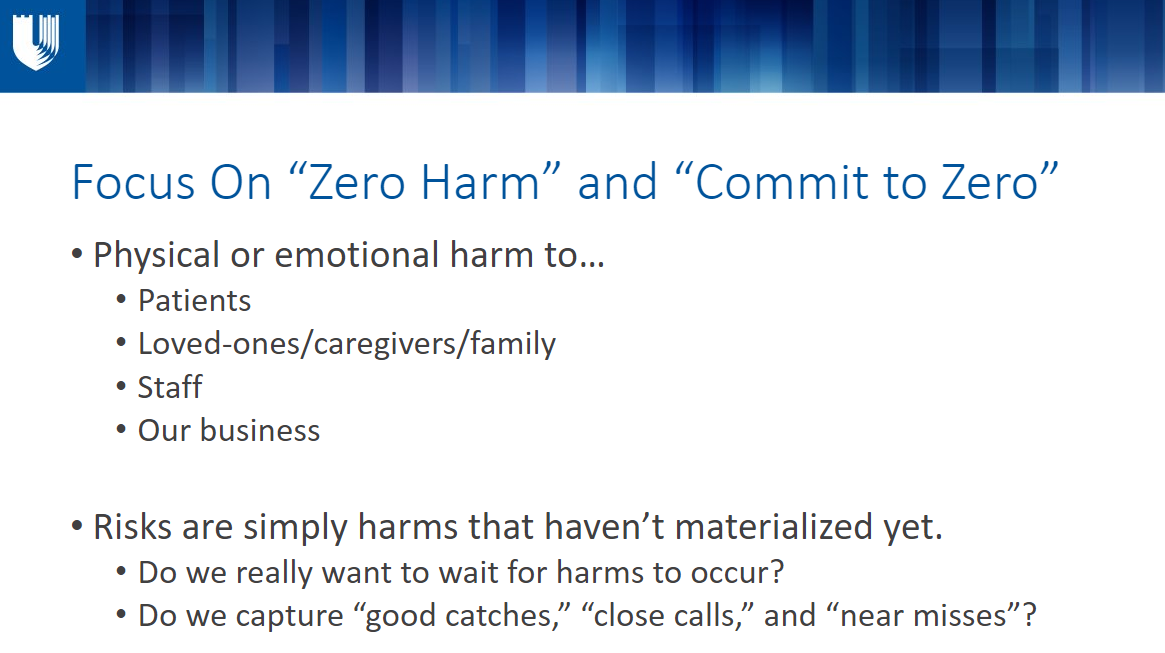
Many DHCH staff are on the road, visiting patients in their homes. This requires a different approach to the management system, to ensure that staff have the most current information on processes, actual and potential safety risks, and more.
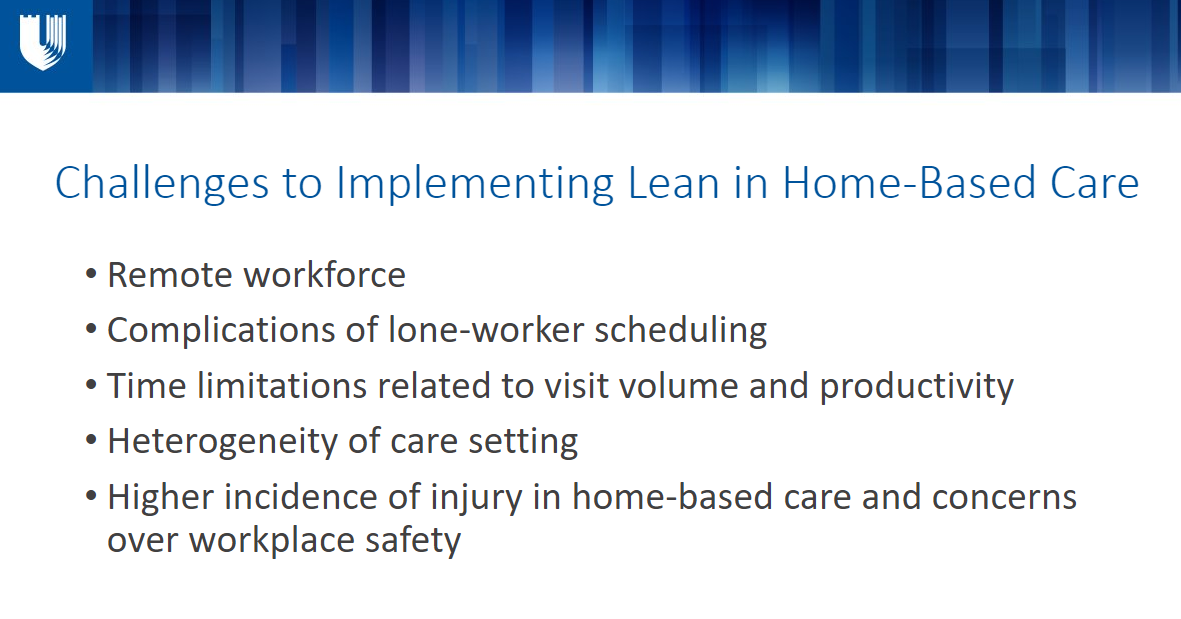
Mr. Linton will share some of the key outcomes DHCH has experienced in this vital Lean improvement work.
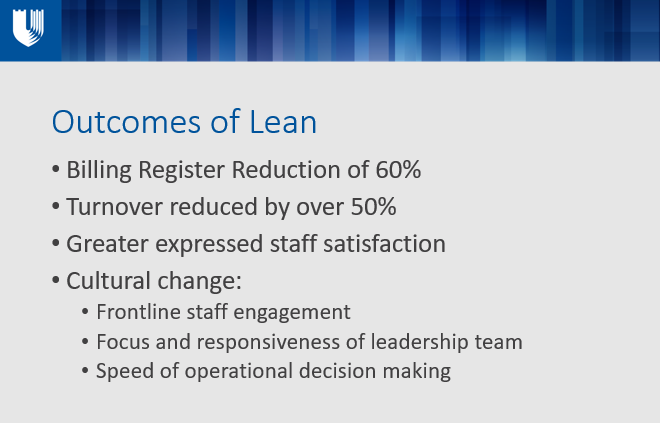
We hope you can join us on October 12 at 1 p.m. Eastern Time. Again, if you cannot join us live, please register for the webinar to receive the recording and a PDF of the slides.

Written by Melissa Moore
Ms. Moore’s responsibilities center on marketing and communications. Prior to joining Value Capture, she served as a Marketing Manager at Reed Smith, a global law firm. Other career steps include: co-founding and operating a trend-setting coffeehouse; securities lawyer; and, service and equipment sales.

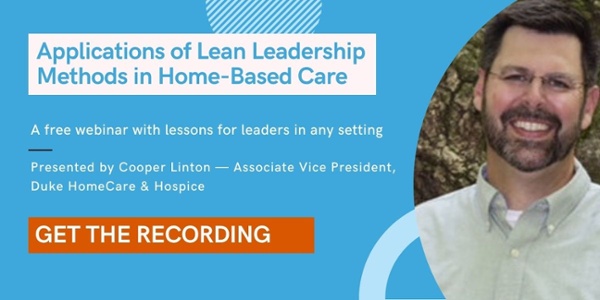

Submit a comment